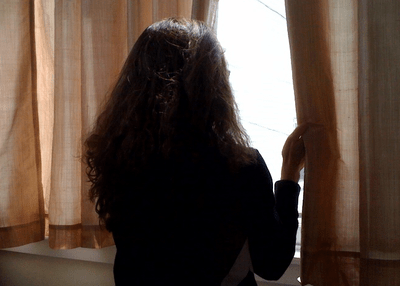Advertisement
Stressed Out And Stuck At Home: Strategies To Help Adults Cope

So far this morning my kids have watched two movies and an old episode of "Glee." We read "Oliver Twist." We packed for a weekend trip we may not be able to take. Now we're snacking. And there's still no telling when the Boston "stay at home" order will be lifted. Stressful? Umm, just a bit.
We've been getting excellent advice from child psychiatrists about how to talk to children about this week's events — from the horrific Marathon bombing Monday to today's scary, surreal manhunt around our neighborhoods: MIT, Memorial Drive, Cambridge Street at Norfolk and as friends say, H2O-town. But what about the grown-ups? We're on-edge too and wondering how to cope. (I tried to go to yoga this morning but it was cancelled.) Here, again from our expert mental health team at MGH is a list of top coping strategies when you are trapped at home during a massive police manhunt:
By Gene Beresin, M.D. and Steven Schlozman, M.D.
As adults we always think of our children first. Maybe this is human nature, survival of the species or just plain love.
But adults have their own share of fears, anxieties, and needs during massively stressful times. What are some of the ways disasters and war-like situations affect us and what can we do to help ourselves?
Humans respond to life and death situations with the fight or flight response – that is they experience normal fear, physical symptoms of anxiety (stomach upset, jitteriness, rapid heart rate, extreme vigilance) and a wish to be in a safe place. But even if safe, excessive fear verging on panic can feel awful. Physical symptoms such as headache, muscle spasm, tremor, heartburn, or even chest pain are not uncommon. We startle at the slightest sound or change in the environment.
Some feel depressed, hopeless, and develop a kind of pessimistic, catastrophic thinking in which most things are taken as signs of doom and gloom. Others long for getting outside, feeling trapped, isolated. Still others cannot remember things, keep track of time or just feel lost. In these moments, it is sometimes hard to function – to do daily activities, take care of kids, or focus on work.
So, what can adults do to cope with our current stress:
1. Adults need support from other close adults, e.g., spouse, family member, friends
2. Family cohesion: stay close to others, kids, spouses. Do things together — play, especially cook!
3. Community cohesion: This includes religious, spiritual or other community groups. Try to stay connected even at a distance, calling, texting, using your social media.
4. Ability to process events, both emotionally and cognitively: Techniques may be specified for each. We need to specify the techniques a bit: Get in touch with your emotions, and think of ways you have settled them in the past; and be careful of exaggerated or catastrophic thinking. This will be over soon. In general use logic over emotion!
5. Self-reflection and awareness is key. Be aware of your current state. Monitor yourself.
6. Self-care that is physical: sleep, good diet, exercise
7. Meditation or yoga is helpful
8. Music or other means of soothing
9. Distractions like hobbies, activities, baking
10. Work if you can!
11. Be careful about use of substances. They will not help in the long run!
12. Vulnerability with pre-existing psychiatric conditions, losses, PTSD. If you suffer from any of this, remember what has helped in the past; and that this event will pass by soon.
13. Be a helper! Just like Mr. Rogers said for kids, you need to feel like you are doing something productive for home, friends, community. Email, text or soothe others around you.
Under lockdown some of these may be done, but the isolation may be eliminated by:
--Contact with friends, community leaders using phone, texting
--Making plans for after this is over; hope for the future.
Conclusion:
Don’t let this get you down. Think of the first responders and how heroic they were in such a stressful time. They saved lives. You will get through this, but remember that it takes more than you alone to get through it. And you will!
Gene Beresin, M.D., is director of the Massachusetts General Hospital Center for Mental Health and Media; Steven Schlozman, M.D. is an assistant professor of psychiatry at Harvard Medical School and a staff child psychiatrist at Massachusetts General Hospital. Readers, can you add to this list? Please post or ask questions below, or tweet Dr. Beresin at @GeneBeresinMD
This program aired on April 19, 2013. The audio for this program is not available.
